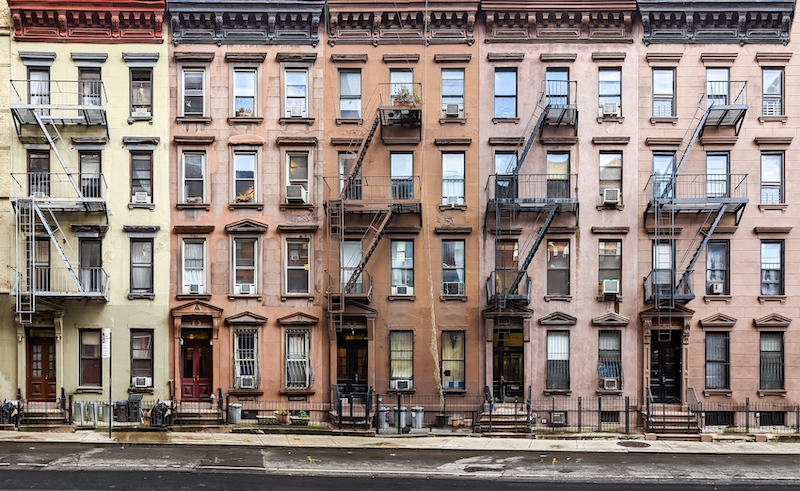On April 20, 2024, New York implemented the Good Cause Eviction Law (Good Cause), marking a significant shift in the landlord-tenant dynamic. This legislation imposes stringent regulations on evictions, mandates lease renewals, and introduces rent increase caps, particularly affecting market rate apartments, thereby fundamentally reshaping the rental landscape across New York City and potentially statewide.
The Good Cause Eviction Law marks a pivotal moment in the governance of rental properties in New York, as it aims to foster greater stability and security for tenants while balancing the interests of landlords. By instituting clear guidelines and protections, the law seeks to address issues of housing affordability, tenant rights, and equitable access to housing.
Impact on Evictions:
The implementation of the Good Cause Eviction Law signifies a significant shift in the criteria for eviction proceedings, as it redefines the permissible grounds for landlords to seek eviction, restricting them to specific reasons deemed “good cause.” These reasons include non-payment of rent, breaches of tenancy obligations, nuisance, property damage, illegal use of premises, and other specified circumstances.
One crucial aspect of the law is that landlords are now required to obtain a court order demonstrating good cause for eviction, even in cases where the lease is not renewed. This requirement adds a layer of legal scrutiny and procedural rigor to eviction processes, ensuring that tenants are afforded adequate protections and due process under the law.
- New York Courts – Evicting Procedures
- Tenant Rights Guide – New York State Homes and Community Renewal
Rent Increase Caps:
The Good Cause Eviction Law introduces crucial safeguards against arbitrary rent hikes by imposing strict limitations on the amount landlords can increase rents. Under the law, any rent increase exceeding the inflation index or 10%, whichever is lower, is automatically deemed unreasonable. This provision aims to protect tenants from exorbitant rent spikes that could lead to housing instability and financial hardship.
For example, if the inflation index for New York City is 5%, and the landlord proposes a rent increase of 12%, the increase would be considered unreasonable under the law.
Landlords are required to provide justification for any proposed rent increase, taking into account factors such as property tax expenses and significant repairs. By considering these factors, landlords can demonstrate that the proposed increase is both reasonable and necessary to maintain the property’s viability while ensuring that tenants are not burdened with unjustified financial demands.
Notice Requirements:
The Good Cause Eviction Law imposes comprehensive notice requirements for landlords, encompassing all leases, renewals, notices, and petitions, regardless of exemption status. These requirements aim to ensure transparency and tenant awareness of their rights under the law. Landlords are obligated to include the “Good Cause Eviction Law Notice” in all documentation, serving as a crucial means of informing tenants about the law’s provisions and any applicable exemptions that may apply to their tenancy.
This notice serves as a vital tool for tenants to understand their rights and protections under the Good Cause Law, empowering them to advocate for themselves and assert their legal rights if necessary. By providing clear and accessible information, landlords facilitate a more equitable and informed relationship with their tenants, fostering greater transparency and compliance with the law’s requirements.
Exemptions:
Despite the broad application of the Good Cause Eviction Law, certain exemptions exist to limit its scope. These exemptions play a crucial role in delineating specific scenarios where the law may not apply, thereby providing clarity and exceptions within its framework.
- Units with Rents Exceeding 245% of Fair Market Rent: Units where the monthly rent exceeds 245% of the fair market rent, as determined annually by the United States Department of Housing and Urban Development (HUD), are exempt from certain provisions of the law. This threshold ensures that higher-income rental properties are not subject to the same regulations as more affordable housing options.
- Units Owned by Small-Scale Landlords: Properties owned by small-scale landlords, typically defined as those owning 10 units or fewer within New York State, may be exempt from certain requirements of the Good Cause Law. This exemption acknowledges the distinct circumstances and challenges faced by smaller property owners.
- Owner-Occupied Buildings with Ten Units or Fewer: Buildings where the owner occupies one of the units and contains ten units or fewer may be exempt from certain provisions of the law. This exemption recognizes the unique dynamics of owner-occupied properties and aims to balance the interests of owner-occupiers with those of tenants.
- Units Already Subject to Rent Regulation: Properties already subject to rent regulation under local, state, or federal laws, rules, or regulations may be exempt from certain provisions of the Good Cause Law. This exemption acknowledges the existing regulatory framework governing such properties and avoids duplicative or conflicting regulations.
In addition to New York City, other local jurisdictions across the state have the option to opt-in to the Good Cause Eviction Law, which could potentially broaden its application statewide. However, the decision to opt-in is at the discretion of each individual jurisdiction, and the specifics of how and when jurisdictions can opt-in may vary. Local governments interested in adopting the Good Cause Eviction Law should consult with legal counsel and review the requirements outlined in the legislation to ensure compliance and effective implementation within their respective communities.


